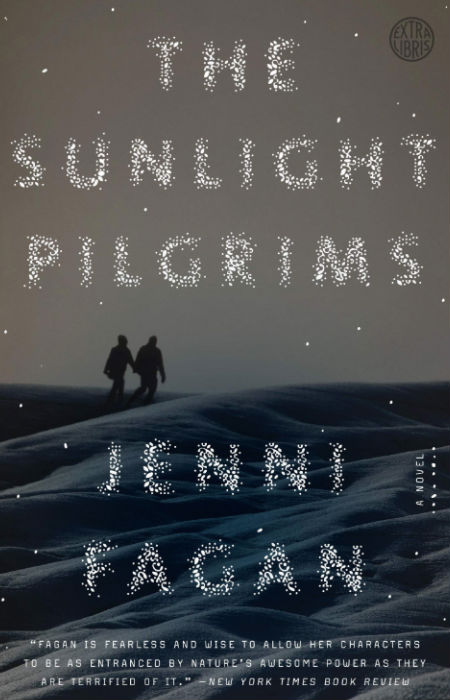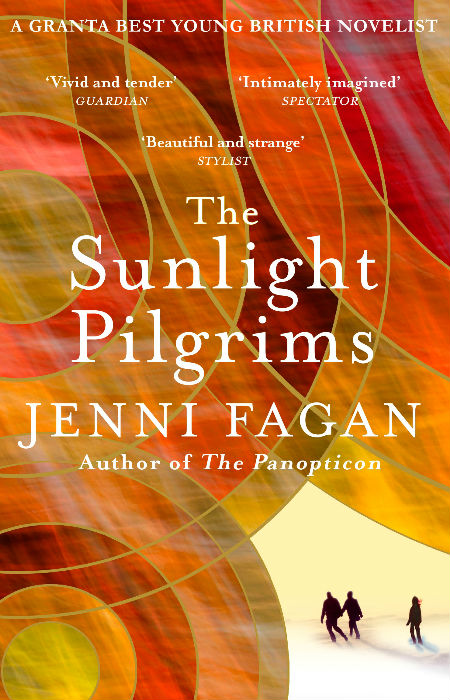
Grief does strange things to a person’s life.
Often without warnin, all the old certainties are upended and you are plunnged into a chaos borne of sadness, loss, pain and a sense that everything good you have ever known is gone.
In reality, it’s not extreme of course but such is the power of grief that it very much feels that way, a state of being with which Dylan McRae, a young cinephile who has spent his whole life running the Babylon arthouse cinema in London with his family and who is the protagonist of The Sunlight Pilgrims by Jenni Fagan, becomes intimately familiar when his grandmother and mother die within months of each other.
The loss of his emotionally-disconnected but vivaciously idiosyncratic mother and his nurturing unconventional grandmother whose life bore the scars of unexpressed trauma, and the subsequent shutting down of the financially-moribund cinema robs Dylan, in one fell swoop, of everything he has ever known.
In the washing machine of emotions that seizes him in the aftermath of these emotionally-wrenching events, he packs a projector, some film reels, a gin distillery and a few sentimental keepsakes and heads off to the remote Scottish village of Clachan Falls where his mother has secretly put a retro silver teardrop caravan in a trailer park populated by an eccentrically lovable cast of characters who are all working hard to scrape by.
“Dylan’s footsteps echo in the empty building. He strides along corridors that hold memories from his childhood in each and every nook. It’s all borrowed: bricks; bodies; breathing–it’s all on loan! Eighty years on the planet if you’re lucky; why do they say if you’re lucky? Eighty years and people trying to get permanent bits of stone before they go, as if permanence were a real thing.” (P. 9)
Like many people caught up in the status quo destructive maelstrom of grief, Dylan is finding it hard to think straight.
His aim is simply to get in, scatter the ashes of his mother and grandmother on their ancestral home in the Orkney Islands and make a retreat back to London to … well, Dylan, like many of us struggling to work out next steps when the future feels weighed down beyond any redemption, isn’t sure what he will do.
All he knows is he is hurting and grieving and that there’s no expectation of this changing any time soon.
Then he meets next door neighbour Constance and her twelve-year-old daughter Stella and everything changes all over again but this time for the better.
The Sunlight Pilgrims, the story of which takes places at a time when climate change is ushering in the worst winter on record, is a gorgeously poetic piece of work that manages to delight with transcendentally beautiful prose while never once feeling anything less than grounded, funny and authentically human.
It is the perfect marriage of form and narrative, that delights on so many levels that you are more than happy to subsume yourself in its languidly un-spooling yet emotionally powerful story for the duration, and desperately sorry when you have to finally bid goodbye to Dylan, Constance and Stella who, like all of us in our contrary complexity, are both happier and possibly not by the story’s end.

What makes The Sunlight Pilgrims, which references a left-of-centre belief by one of the park’s residents that you stare just below the sun and store up its energy in your cells for later use if needed, so engaging is the richness and truthfulness of its characters who never feel anything less than vitally, honestly real.
They have a lot on their plates – Dylan in the midst of all-consuming grief, Constance just scraping by as a furniture restorer who rescues items from the town dump & facing opprobrium from the fellow villagers over the two boyfriends she has simultaneously had for twenty years and Stella, once Cael, who is fighting for her true self and against bigotry from students and parents – and yet for all the pressure upon them, and it is considerable, there is a vibrant loveliness that infuses every last one of their interactions.
That is not to say that everything is perfect between them but it is real and reflective of the harshness and the rewards of life which do not always accrue in equal measure.
Stella is one person who is well aware of this uncomfortable truth.
Though she is exhilarated to finally be on the outside who she has always been on the inside, this inner happiness has not erased the prejudice and bigotry arrayed against her, restored lost friendships and smoothed the path to the white picket future she pictures for herself.
And yet, in the feisty but warmhearted interactions with her mother, and her straight down the line conversations with Dylan with whom she forms an honest and uncomplicated bond, and even in the harshness of life in the caravan park especially as nightmarishly cold temperatures approach, she seems happy and sure with herself.
“Constance is trying not to look at him. She stands in between the wide barn doors with panels of stained corrugated iron on either side of her. Behind her there are the peaks of white mountains. Her hood is up and she turns again and they lean against the wall, their tongues the only heat in a world dropping degrees by the hour. Wrapping one leg around his hip, him wanting to pull her up and into him, undoing her jacket. She pulls her hood back.” (P. 163)
The Sunlight Pilgrims is a slow-burning but impactful novel which ruminates in the most rewarding of ways on the way that life offers us up connections to other people that confound well-established ideas of what family should look like.
By contrasting Dylan’s life at the cinema with his unconventional mother and grandmother with the close knit group at the park, and specifically with the tight bonds he forms with Constance and Stella, we come to appreciate that the families we choose are every bit as rich and vital and true as those into which we are unceremoniously born.
There is a temptation, particularly among more conservative elements, to elevate our biological families over our found ones, but the truth is, life is rarely that neat and tidy and any expectations we might have will be constantly confounded, often in the very best of ways if we are open to it.
As a book that understands the non-linear and unpredictable nature of grief and the fact that it can often feel like there is no end to it, The Sunlight Pilgrims is also an honest reassurance that life remakes and reforms itself when we least expect it and in ways that we, happily, don’t see coming and that while the life we end up with may bear little to no resemblance to that which we came before, the important thing is that it persists and will continue and we can heart and hope from that, even in the very worst of circumstances.
